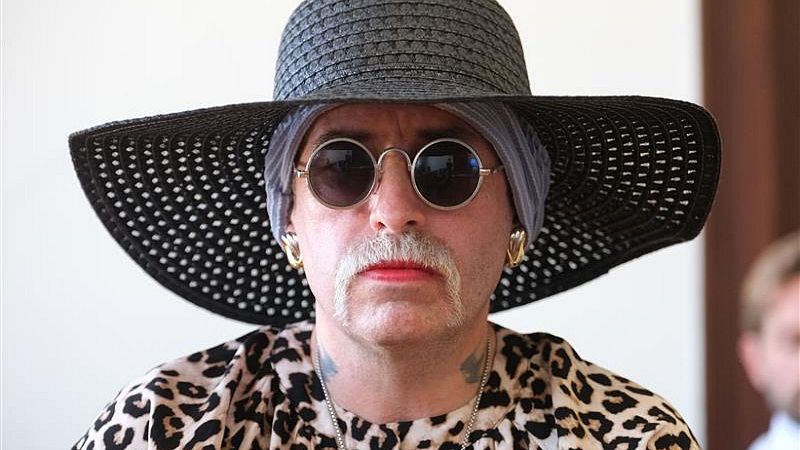'From Moscow with love': Germany issues arrest warrant after neo-Nazi Liebich flees the country

German authorities issued an arrest warrant for neo-Nazi Marla-Svenja Liebich, formerly Sven Liebich, after failing to report to a Chemnitz women's prison to begin serving a sentence and fled abroad, police confirmed.
Liebich has remained active on social media since the escape, posting on X that they are "on the territory of the Russian Federation" and speaking with "officials close to the Kremlin".
"Nobody knew about my decision, no lawyer, no family," Liebich said alongside a photo in front of St Basil's Cathedral with text reading "From Moscow with love, James Bond."
"Even as a little girl, I went to a school with extended Russian lessons," Liebich said, noting "how much of that is still deep in my head."
The neo-Nazi disclosed plans to apply for asylum in the United States from Russia, claiming "interest has been expressed."
It is unclear whether Liebich, who has become known for his bizarre stunts, was indeed in Russia.
A known provocateur who was in trouble with the law for wearing a Nazi uniform, Liebich has been seen wearing a Star of David since the name and gender change.
Potential abuse of Germany's new 'self-declaration' law
In July 2023, Liebich, who was then still known as Sven, was sentenced to one and a half years in jail without parole for right-wing extremist activities, including incitement to hatred, defamation and insult.
A year and a half later, Liebich took advantage of Germany's new law, called the Self-Determination Act, which makes it easier for trans and non-binary people to have their gender entry and name changed.
Liebich then used the new self-identification to request serving the sentence in a women's facility, sparking widespread controversy.
Before changing gender and first name, Liebich disrupted an LGBTQ+ pride parade in the city of Halle, and had called queer people "parasites of society".
Federal Minister of the Interior Alexander Dobrindt (CSU) accused Liebich of abusing the regulation.
"The judiciary, the public and politicians are being made fools of here," he told local media. Dobrindt now wants to protect the Self-Determination Act from abuse better.
"We now need a debate on how to re-establish clear rules against the abuse of gender reassignment," he concluded.
How could any of this even happen?
The formerly ruling "traffic light coalition" of centre-left SPD, liberal FDP, and the Greens simplified German laws, making it possible to change one's name and gender through a simple declaration at the registry office since November 2024.
While the aim of the Self-Determination Act was to make it easier for transgender and non-binary people to change their gender and name, this also made it easier to abuse the system, which might lead to another dispute within the black-red government of SPD and centre-right CDu, which has since called for talks on "new regulations".
The coalition agreement stated that the law will be evaluated by July 2026 or sooner.
However, SPD continues to back the law, as confirmed by Carmen Wegge, legal policy spokesperson for the party's parliamentary group, who said "there will be no changes to the Self-Determination Act."
Falko Drossmann, queer policy spokesperson for the SPD parliamentary group, also told Der Spiegel: "I clearly reject blanket tightening or rolling back of the law." "
"The Liebich case is a targeted attempt at abuse by a known right-wing extremist and not a structural problem with the Self-Determination Act,” said Drossmann.
UN expert on women's rights, Reem Alsalem, warned of the dangers for women and girls when the law was passed.
Women who are affected by male violence are particularly at risk, she said at the time, and protective measures to prevent abusers from exploiting the law are simply lacking.
The federal government had rejected the criticism.
Today

